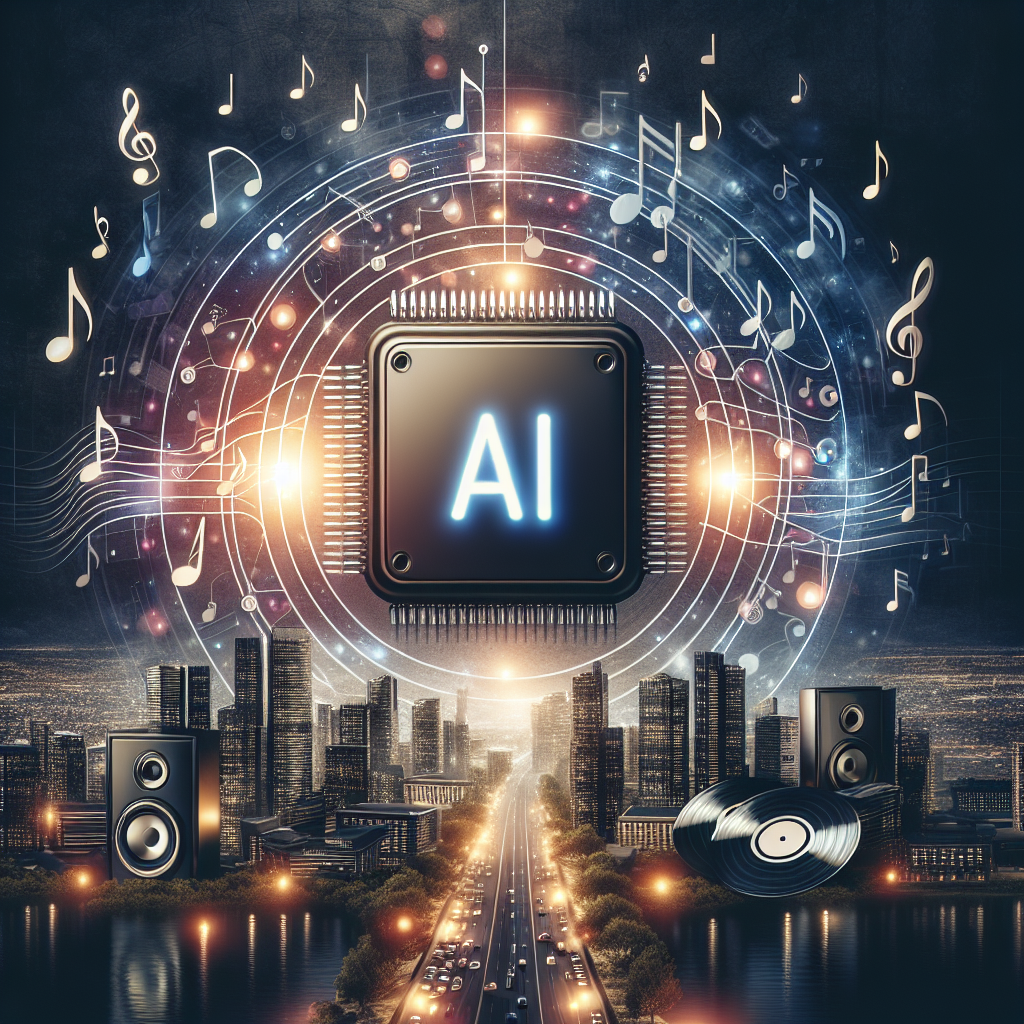Artificial Intelligence (AI) has been transforming various industries, and the music business is no exception. From helping artists create music to revolutionizing how music is discovered and consumed, AI is reshaping the entire music ecosystem. In this article, we will explore the evolution of music business models with the integration of AI and how it is changing the way we experience and interact with music.
The Role of AI in Music Creation
One of the most significant impacts of AI in the music industry is its role in music creation. AI algorithms are now being used to generate music compositions, remixes, and even entire songs. These AI-generated creations are being used by artists as inspiration or even as finished products. For example, algorithms can analyze popular songs and create new music based on the patterns and structures found in those songs.
AI is also being used to enhance the creative process for artists. For example, AI tools can help musicians generate chord progressions, melodies, and even lyrics. These tools can provide artists with new ideas and inspiration, helping them overcome creative blocks and explore new musical directions.
Additionally, AI is being used to assist in the production and mixing of music. AI algorithms can analyze audio tracks and suggest improvements to the mix, helping artists achieve a more polished and professional sound.
Overall, AI is playing a crucial role in expanding the creative possibilities for musicians and helping them push the boundaries of what is possible in music creation.
The Impact of AI on Music Discovery and Recommendation
Another area where AI is transforming the music industry is in the realm of music discovery and recommendation. AI algorithms are now being used to analyze vast amounts of data, such as listening habits, user preferences, and music metadata, to create personalized music recommendations for listeners.
Streaming platforms like Spotify and Apple Music are using AI to curate playlists, recommend new music, and help users discover artists they may not have otherwise encountered. These personalized recommendations help users find new music they enjoy, leading to increased engagement and loyalty to the platform.
AI is also being used to analyze music metadata, such as tempo, key, and genre, to create more accurate and relevant recommendations. This helps users discover music that aligns with their tastes and preferences, leading to a more satisfying listening experience.
Overall, AI-powered music discovery and recommendation systems are revolutionizing how listeners discover and engage with music, leading to a more personalized and tailored music experience.
The Evolution of Music Business Models with AI
AI is not only influencing how music is created and discovered but also changing the way music is monetized and distributed. The traditional music business model, which relied heavily on physical sales and radio play, has been disrupted by the rise of streaming platforms and AI-powered technologies.
Streaming platforms like Spotify, Apple Music, and Tidal have become the dominant mode of music consumption, with AI playing a crucial role in shaping how music is delivered to listeners. These platforms use AI algorithms to analyze user data and behavior to create personalized playlists, recommendations, and experiences for each user.
AI is also being used to optimize the monetization of music on streaming platforms. For example, AI algorithms can analyze streaming data to identify trends and patterns that can help artists and labels make informed decisions about marketing, promotion, and distribution strategies.
Additionally, AI-powered technologies are being used to combat piracy and protect intellectual property rights in the music industry. For example, AI algorithms can analyze online platforms to identify and remove unauthorized copies of music, helping artists and labels protect their work and revenue.
Overall, AI is transforming the music business model by enabling personalized music experiences, optimizing monetization strategies, and protecting intellectual property rights, leading to a more sustainable and profitable music industry.
FAQs
Q: How is AI being used in music creation?
A: AI is being used in music creation in various ways, such as generating music compositions, remixes, and even entire songs. AI algorithms can analyze popular songs and create new music based on the patterns and structures found in those songs. AI tools can also help musicians generate chord progressions, melodies, and lyrics, providing artists with new ideas and inspiration.
Q: How is AI changing music discovery and recommendation?
A: AI is transforming music discovery and recommendation by analyzing vast amounts of data, such as listening habits, user preferences, and music metadata, to create personalized music recommendations for listeners. Streaming platforms like Spotify and Apple Music use AI algorithms to curate playlists, recommend new music, and help users discover artists they may not have otherwise encountered.
Q: How is AI reshaping the music business model?
A: AI is revolutionizing the music business model by enabling personalized music experiences, optimizing monetization strategies, and protecting intellectual property rights. Streaming platforms use AI algorithms to analyze user data and behavior to create personalized playlists, recommendations, and experiences for each user. AI-powered technologies are also being used to combat piracy and protect intellectual property rights in the music industry.
In conclusion, AI is reshaping the music industry in profound ways, from helping artists create music to revolutionizing how music is discovered and consumed. The integration of AI is transforming music business models, enabling personalized music experiences, optimizing monetization strategies, and protecting intellectual property rights. As AI continues to evolve, we can expect even more innovations and disruptions in the music industry, leading to a more dynamic and vibrant music ecosystem.

